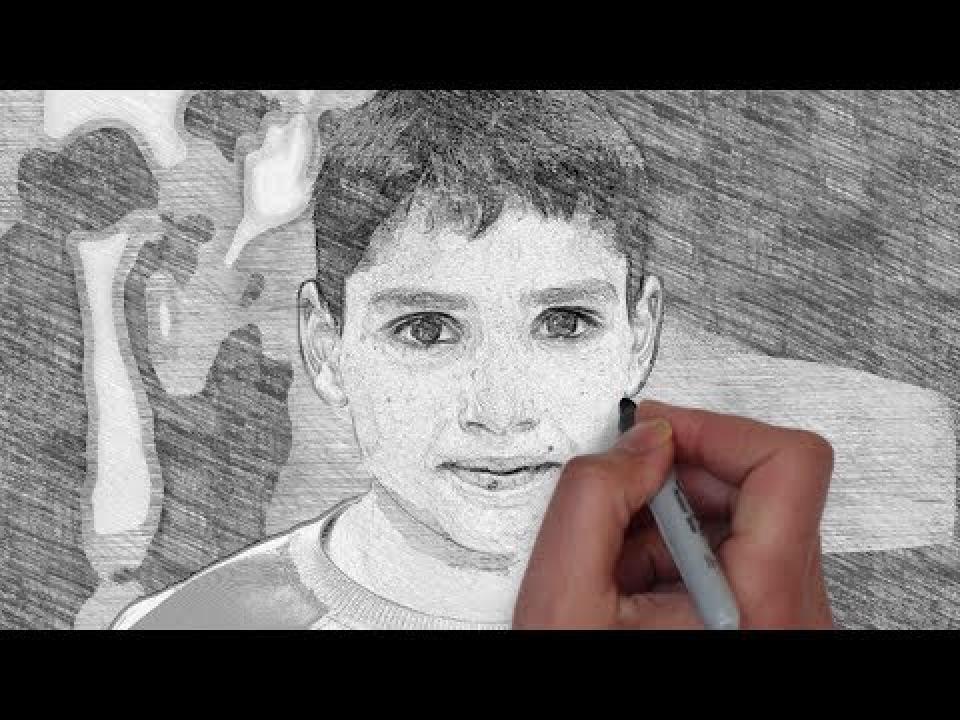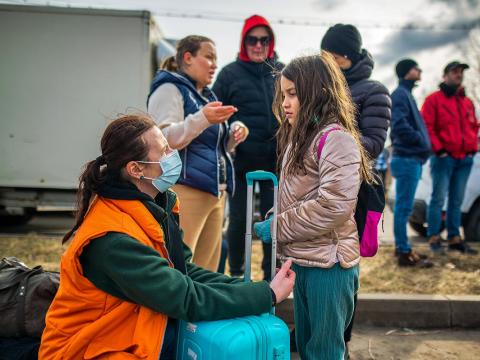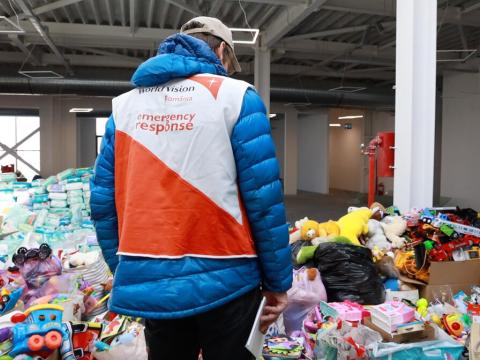
Three key ways we'll support Ukraine's children
After helping to set up operations in Romania and Moldova, Julian spotlights three priority areas for World Vision's Ukraine response.
4 March, 2022
The first few weeks of any humanitarian crisis are chaotic. This is because, whether the disaster is natural or man-made, the situation is so fluid. There are so many moving parts, and things shift and change on a daily, if not hourly basis.
For aid agencies like World Vision the initial days and weeks are a time of responding to immediate needs while also working out what is best in the short to medium term. I have just returned from working on the border of Ukraine and have been talking with colleagues, partners, peers, UN agencies and local authorities to identify what the needs are, and where World Vision can be of most use, especially to local civil society and host government efforts to help the refugees.
The following areas are likely to become some of the most important areas for our emergency response:
Cash and Voucher programming – for many emergency responses, providing refugees or internally displaced people with cash or vouchers allows them to buy what they feel they need most. Cash and vouchers give more choices and helps adults who, perhaps only days or week before were able to provide for their children. Imagine as a parent, your child knowing that everything that you give them comes from an aid agency. Providing cash to parents helps to maintain dignity within the family and enables parents to remain the key providers to their children.
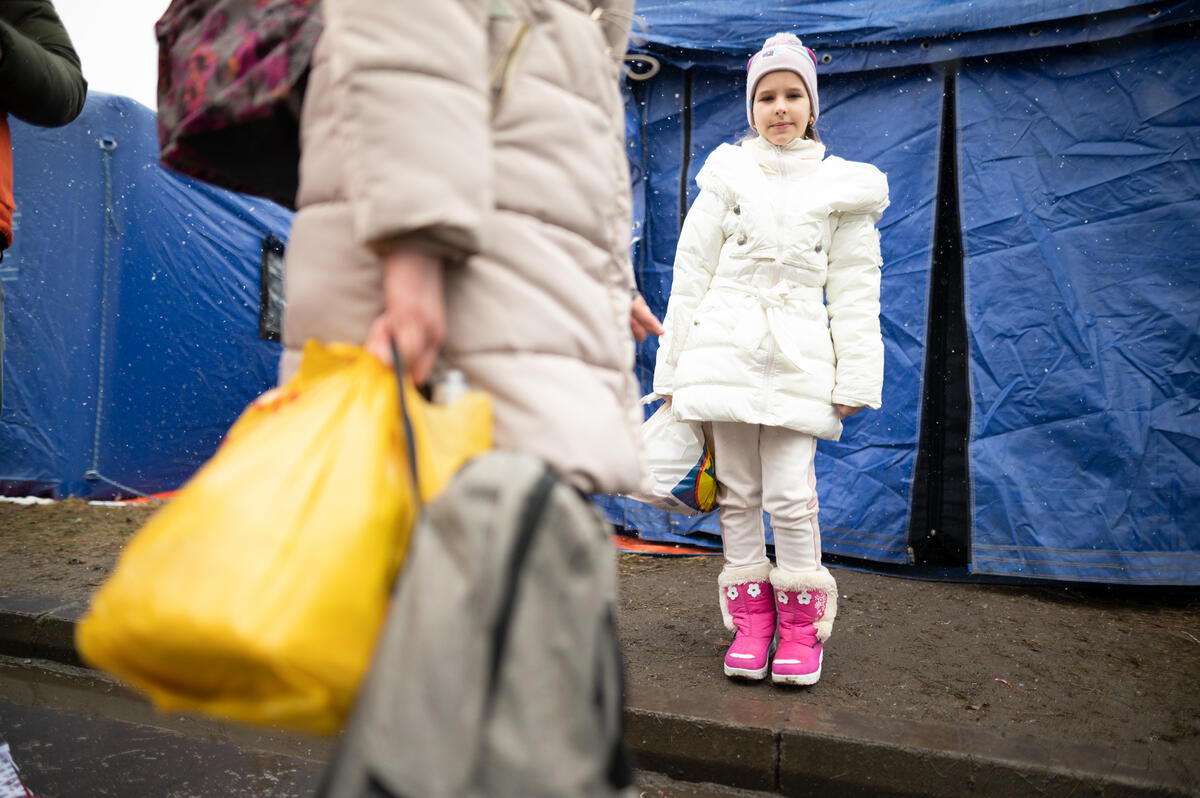
As we consider where and how to provide cash and vouchers, we need to be careful that we supply them only if markets are functioning. If they are not then this can lead to price rises; people have money, but few items for sale, so costs go up. Given the destruction to Ukraine’s infrastructure and supply chains by the conflict we need to use cash where we can, but be open to provide food and goods to people where they are not available. [Learn more about our Cash and Voucher programming here]
Complementing Local Partners – In any crisis, all organisations need to consider what will best support the needs of the affected community. Often organisations that were already there before the crisis are best placed to respond as they can act quickly, have established local relationships, and are more likely to have staff who can navigate complex local dynamics in the most effective manner.
The mobilisation of local civil society in Ukraine, Romania and other countries impacted by the crisis has been amazing. In Romania and Moldova I was constantly humbled and inspired by local people moving fast and working hard to get things done, (including my colleagues at World Vision Romania.)
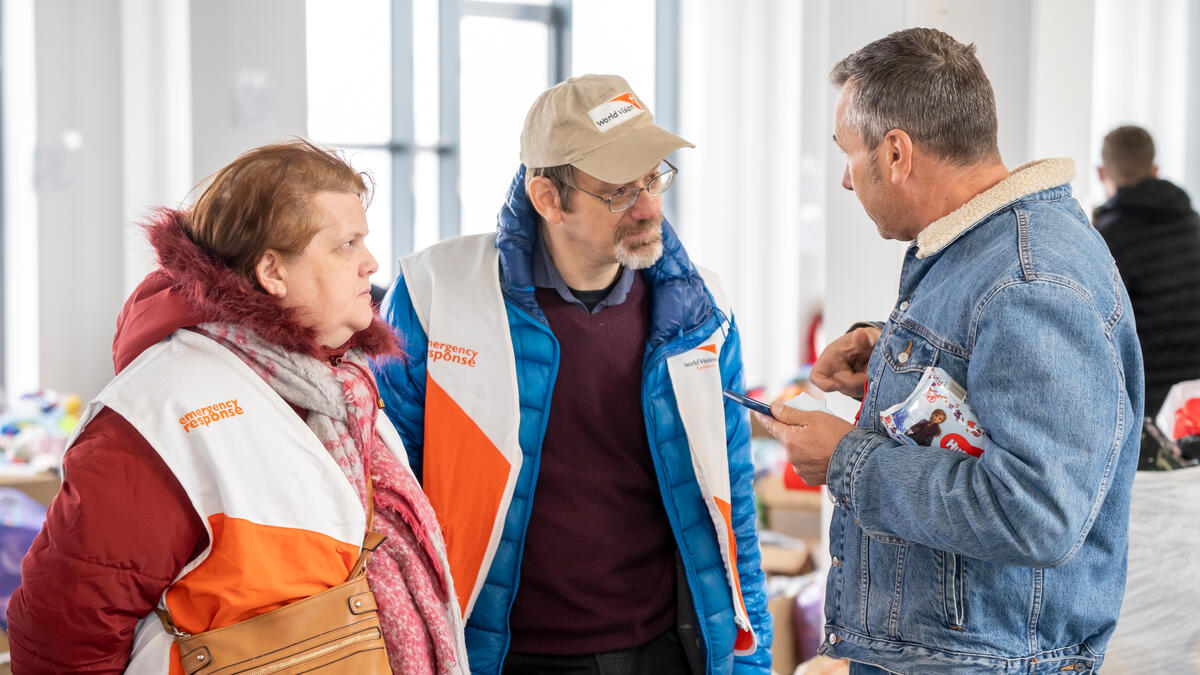
The other day I visited a transit centre that had been set up by the municipality and local volunteers that handles 400 people a day. Local civil society had done an excellent job providing food and all the items that the centre needs. World Vision is looking at ways that we can help them to strengthen their efforts. For example, I was talking to the head volunteer about SPHERE standards around humanitarian action and shared some advice about that from our experience of emergencies in other countries. We were also able to pay the centre’s utility bills for three months as this was a major worry for the volunteer management of the centre.
World Vision has been working in Romania on children's issues for over 30 years and was able to use this experience to provide contextually relevant child protection training to the centre’s volunteers. Finding appropriate ways to complement local civil society will be increasing important as needs grow and the response stretches into the medium term.
Protection from Sexual Exploitation and Abuse, and Child Protection - Most of the refugees are women with children. Imagine suddenly having to flee your home and drive through several countries where you do not speak the language and where people know you are vulnerable. World Vision is gravely concerned that women travelling across Europe from hotel to hotel may be vulnerable to grooming and exploitation.
This is something that we are concerned about and we are looking into. World Vision is already mobilising a safeguarding focal point to do what we can to ensure vulnerable refugees remain safe. We will also be looking at how children and young people could get into education so that they are less like to fall prey to abusers and traffickers. Learning with other students will also help refugees with their mental and emotional health. [Learn more about our child protection work here]
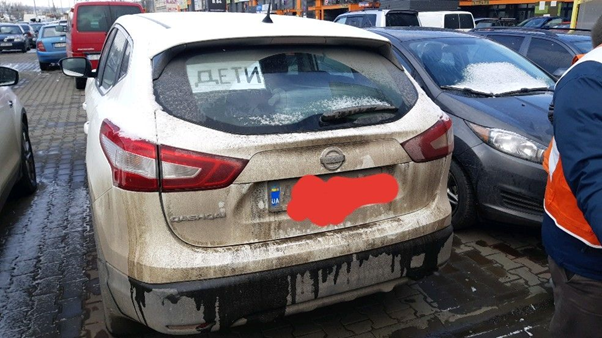
While World Vision works to protect all vulnerable people, its main focus is on children who are usually the most vulnerable. If more proof was needed that children are at risk from this conflict, then this photo surely provides it. Can you imagine being forced to flee your home, but first having to stick a sign on your car telling soldiers that it contains children? During my travels across Moldova and Romania I saw many signs like this. For me it is strong reminder that all children need protection from war and the lengths that a mother will go to keep them safe.
As I reflect on my time working in the Ukraine crisis it has given me even stronger motivation to support refugees right across our Middle East Eastern Europe region. Children impacted by war in Ukraine, Syria, Afghanistan and beyond all need our support.
To learn more about World Vision’s Ukraine Crisis Response click here
Julian Srodecki is World Vision’s Regional Humanitarian and Emergency Affairs Director, Middle East Eastern Europe region. Find him at https://www.linkedin.com/feed/
